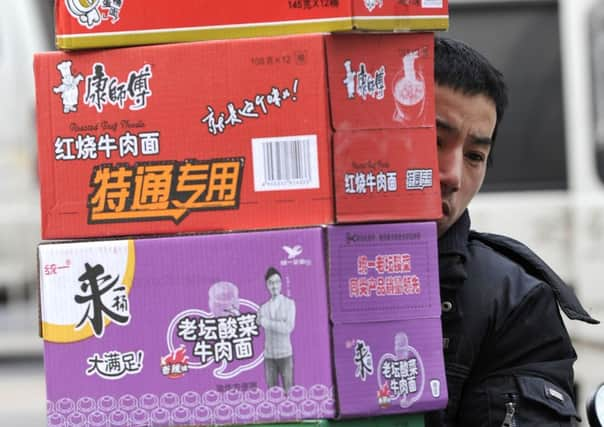South Korean anger at noodles heart disease link


Research by the Baylor Heart and Vascular Hospital in the US has provoked feelings of wounded pride, stubborn resistance, even nationalism among the people of the East Asian peninsula state, who eat more instant noodles per capita than anywhere else in the world.
Many have vowed not to quit, while others have revealed techniques they said keeps them healthy such as adding Omega-3, and vegetables, using less seasoning and avoiding drinking the soup, which is packed with salt and flavouring. Some dismissed the study because it was conducted in the US.
Advertisement
Hide AdAdvertisement
Hide AdThe omnipresence of instant noodles, often in individually wrapped disposable bowls and cups, is evident in venues including internet cafes, libraries, trains and at ice-skating rinks. Even at the halfway point of a trail up South Korea’s highest mountain, hikers can stop for instant noodles.
The Baylor study was based on South Korean surveys from 2007-9 of more than 10,700 adults aged 19-64.
It found that people who ate a diet rich in meat, fizzy drinks and fried and fast foods, including instant noodles, were associated with an increase in abdominal obesity and LDL, or “bad,” cholesterol.
The study raises important questions, but does not directly prove that instant noodles are to blame, cautioned Alice Lichtenstein, director of the cardiovascular nutrition lab at Tufts University in Boston.
She added: “What’s jumping out is the sodium [intake] is higher in those who are consuming ramen noodles. What we don’t know is whether it’s coming from the ramen noodles or what they are consuming with the ramen noodles.”
A serving of the top-selling brand of instant noodles provides more than 90 per cent of South Korea’s recommended daily sodium intake.
Social commentators say many South Koreans feel nostalgia for instant noodles, which came on to the market in the 1960s as the country began clawing its way out of the poverty and destruction of the Korean War into becoming what is now one of the world’s wealthiest countries.
South Koreans have a reputation for being hard drinkers and many consider instant noodles an ideal remedy for hangovers.
Advertisement
Hide AdAdvertisement
Hide AdKo Dong-ryun, an engineer from Seoul, travels abroad for work. He said he fills half his luggage with instant noodles.
He added: “The smell and taste create an instant sense of home.”
Choi Yong-min, marketing director for food company Paldo, said it was difficult to expect much nutrition from a meal that costs about 50p.
He added: “I can’t say it’s good for your health, but it is produced safely.”